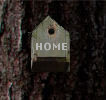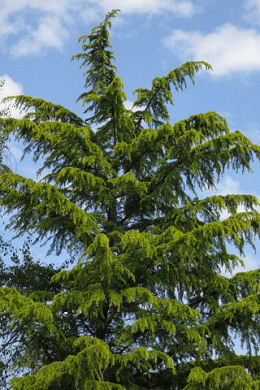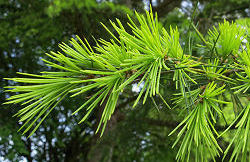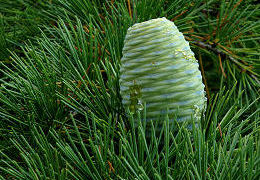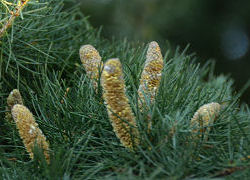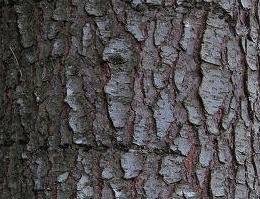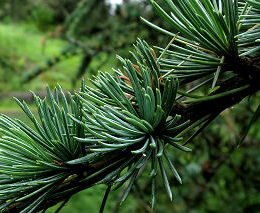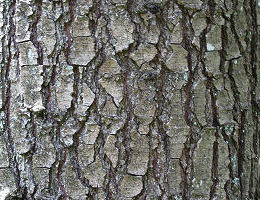|
The true cedars,
that is,
those of genus Cedrus,
are native to the
Himalayas and the Mediterranean region. They have bundles of
needles that grow on short stems. The
cones of
the cedars look and act like fir cones. They sit upright on
the branch, and they disintegrate and disperse
their winged seeds while attached to the tree. The cedars include these
species that are often
planted as ornamentals:
Deodar cedar (Cedrus deodara)
is native to western Himalayas and has green needles that are 2 inches
long.
Deodar cedar at Hoyt Arboretum
Cedar
of Lebanon (Cedrua libani)
is native to the mountains of Lebanon, Syria and Turkey, and has
blue-green needles that are an inch long.
Cedar of Lebanon at Hoyt Arboretum
Atlas cedar (Cedrus atlantica)
is native to the Atlas Mountains in northern Africa and looks like a cedar of Lebanon. A few sources (for example Eckenwalder) treat it as a subspecies of cedar of
Lebanon (Cedrus
libani subsp. atlantica).
Atlas cedar at Hoyt Arboretum
Deodar cedar is a common urban conifer in the Northwest. Cultivars of all
three cedars are also popular, mostly dwarf-sized varieties that have
blue needles. Deodar is derived from the sanskrit term for "wood of the
gods."
|
